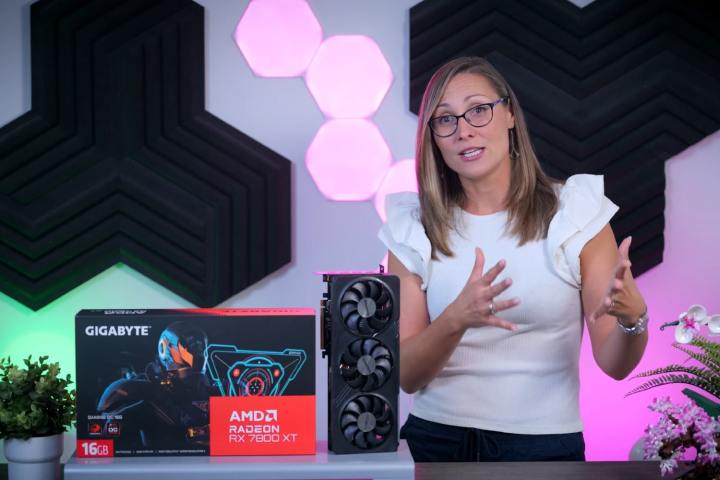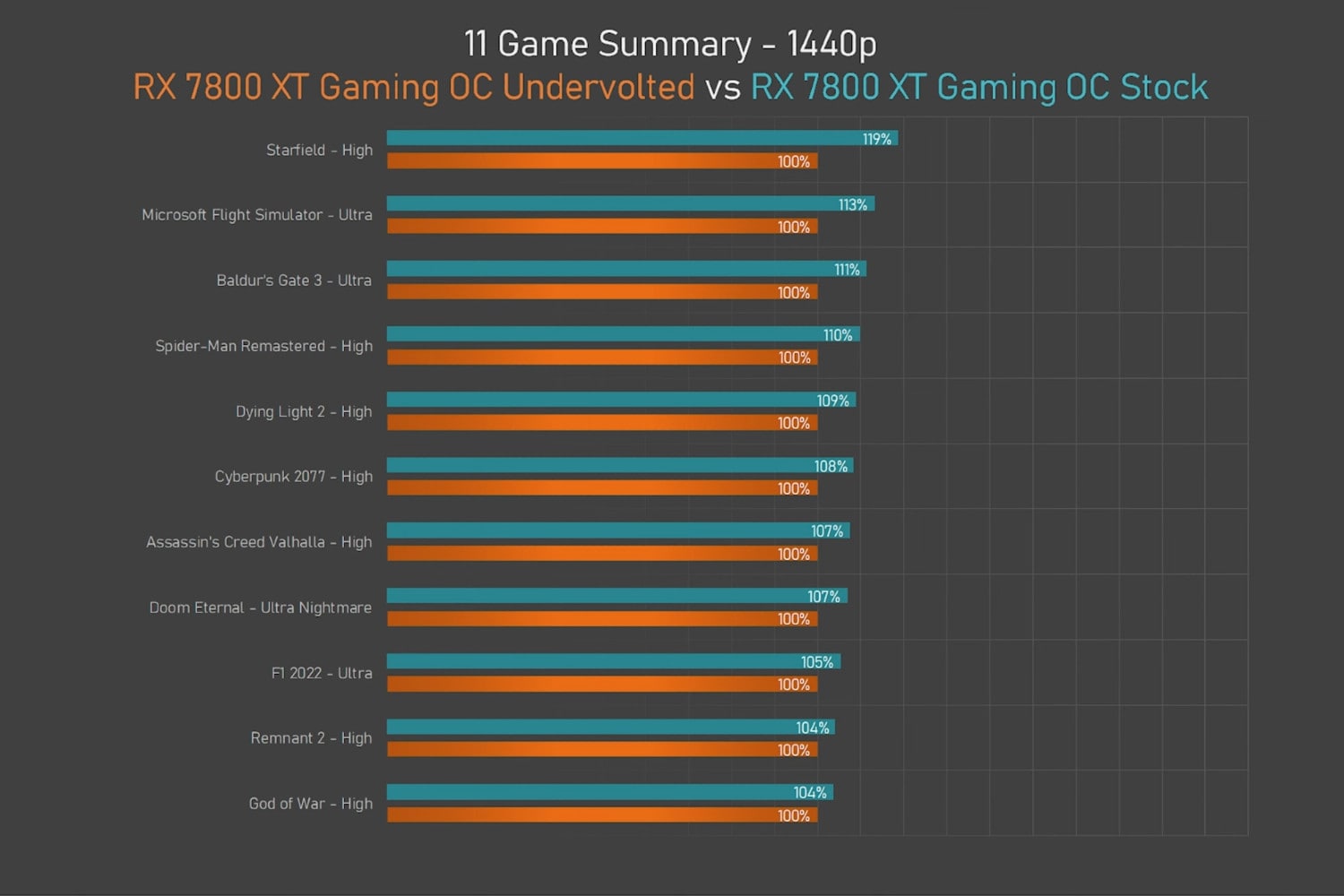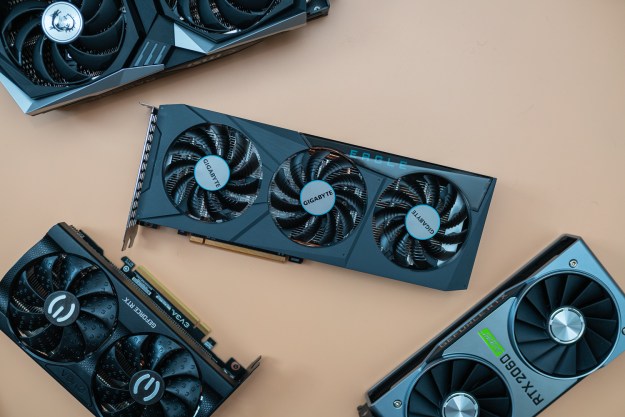AMD’s RX 7800 XT graphics card handily beats Nvidia’s RTX 4070, outperforming it in games and costing less to boot, with the GPU comparison falling firmly in AMD’s favor. The main drawback? Its power consumption is much higher. But it doesn’t have to be that way, as one YouTube channel has shown that undervolting the card could have a notable impact.
When set up right out of the box, AMD’s card has a power draw of 263 watts, while Nvidia’s offering sips just 200 watts. If you’re concerned about your graphics card getting hot and heavy in operation — and spiking your electricity bill — the RTX 4070 is probably the better choice.
Yet Dutch YouTube channel Techtesters set out to see if it could do things differently. The channel undervolted the RX 7800 XT to 202 watts, bringing it down to the RTX 4070’s power consumption levels. The result? The AMD card matched the performance of Nvidia’s GPU across a range of games.
That’s significant because the AMD card costs $100 less than its Nvidia rival. It means you can get lower power consumption and equivalent performance and still save money by going with Team Red.
Gaming head-to-head
Techtesters reviewed an overclocked Gigabyte RX 7800 XT Gaming OC that was pulling 286 watts of power by default. They decided to cap the power draw to 202 watts, while the clock speed was set to 2,220MHz — down from 2,540MHz and below the RTX 4070’s 2,360MHz.
In testing across 11 different games, the undervolted RX 7800 XT was 1% faster than the RTX 4070, with results ranging from a 21% advantage for AMD in Starfield to a 14% win for Nvidia in Spider-Man Remastered. Yet considering the lower price of the AMD card, trading blow-for-blow with the RTX 4070 is impressive.
When put against the stock version of the RX 7800 XT, the undervolted version was a little slower than the untouched card, with frame rates dipping anywhere from 4% in God of War to 19% in Starfield. Depending on the game you play, you might notice a sizeable drop or nothing at all.
The same performance for less cash

However, when put in context, the results are more impressive. The original RX 7800 XT used 40% more power but only resulted in an average of 9% better performance. Depending on the game, you might not notice the performance difference, but it’s much more likely you’ll feel the change in heat and noise.
Speaking of which, Techtesters noted that the undervolted card was quieter, dropping from 39 decibels to 32 decibels in use. In terms of temperatures, the GPU hot spot temperature dropped from 89 degrees to 83 degrees. It wasn’t all rosy, however, since the GPU core and memory temperatures both rose five or six degrees each.
Overall, the testing seems to suggest that the RX 7800 XT is a strong pick against the RTX 4070, even when it’s undervolted. By reducing the clock speeds and enacting a power limit, you can still get equivalent performance compared to Nvidia’s card, all for $100 less. If electricity is expensive where you live, the reduced power draw could save you even more money.
Editors' Recommendations
- Nvidia may launch three new Super GPUs to fight back AMD
- AMD has another new GPU that it says can beat the RTX 4060 Ti
- I bought Nvidia’s worst-value GPU, but I don’t regret it
- Nvidia gave AMD’s RX 7800 XT a free win
- I tested AMD’s RX 7800 XT against Nvidia’s RTX 4070, and there’s a clear winner







